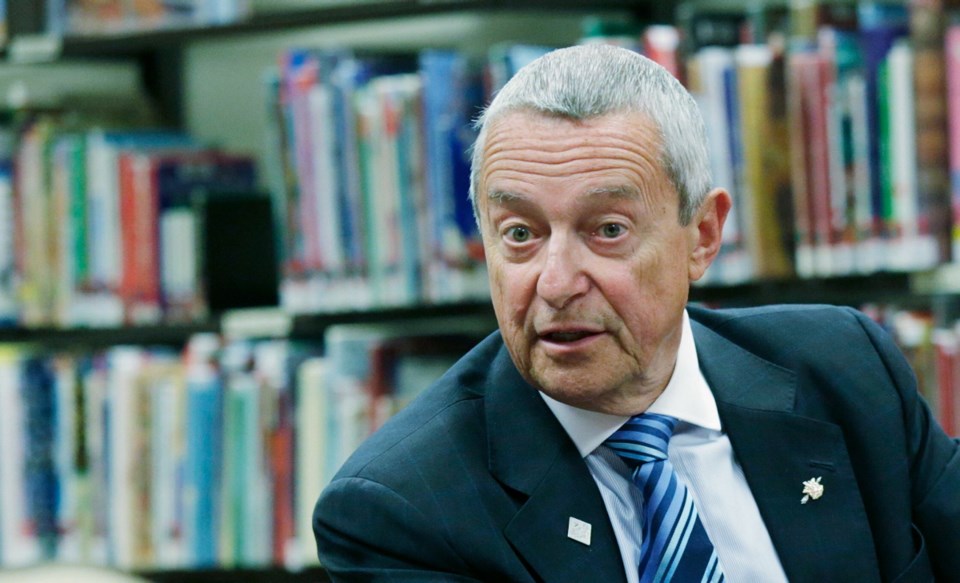It’s hard to imagine a government being in a weaker position than it is now when it comes to teacher contract negotiations.
But at the rate the B.C. Liberals are digging the hole they are in, it’s conceivable they could find a way to make things worse.

A long-shot appeal of last week’s B.C. Supreme Court decision might be one way. The government was thrown for a remarkable loss in that decision.
It dictates that the school system revert to 2002 and operate under the B.C. Teachers’ Federation contract then in force. It had provisions about learning conditions and staffing levels that the government bailed out on because they were so expensive.
Not only that, the judge found the government had deliberately tried to provoke a strike in the 2012 school year, in order to build public support for its preference to legislate a teachers’ contract.
One of the issues then was that the government, after losing the case over abandoning the old contract, responded by trying the same thing all over again. Last week the judge ruled that the second effort was just as unconstitutional as the first. Then she ordered the government to pay $2 million to the BCTF.
Maybe the government could win an appeal, even though it didn’t bother appealing the first, similar loss. It would get some semblance of authority back in the ongoing negotiations for a new teachers’ contract. (Today is the first anniversary of the start of bargaining.) But the only apparent reason for appeal at this point is that the government doesn’t like the decision. Not liking a verdict is hardly a reason for appeal.
Errors in law are the more obvious grounds. Lawyers are in the second week of looking for some.
They might find some straw to grasp and file an appeal. But it will look like a desperate attempt to buy some time.
And how could the government sit down and negotiate with the BCTF — talks are scheduled soon — when it’s appealing the union’s epic win in court? The BCTF has been very restrained when it comes to the decision. The enormity of the victory is probably hard to take in.
But an appeal would likely be read as a provocation. It wouldn’t set the kind of tone the government needs to negotiate its way out of this debacle.
Also in the background are the changes at the negotiating table over the past year. Employers were represented by an agency that bargained for all the school districts. But Education Minister Peter Fassbender suspended that team and appointed a single individual — labour expert Peter Cameron — last year.
The agency is still the nominal representative. But it’s basically the BCTF negotiating with the government now, over renewing a contract that expired seven months ago. They dissolved the arm’s-length relationship and assumed direct responsibility for negotiations. Then the decision threw them for a bad loss and raised serious questions about the government’s credibility during the last round of talks.
So, just before a cut-out valve or some distance from government might have been useful, they got rid of it.
The bottom-line issue is that abiding by all the contract requirements from 12 years ago will cost huge amounts of money that the government doesn’t have.
One observer with first-hand knowledge of the saga said it’s a collective-bargaining truism that if you don’t have any money to negotiate with, the next best thing to use is power. That’s how some of old provisions got in to the contract — they were popular items that pushed costs years into the future.
If the Liberals hold to the line that the province simply can’t afford the 2002 contract provisions, the fallback would be to start negotiating power and control with the BCTF to reach a contract in 2014. The teachers could wind up with even more authority than the Supreme Court has already given them.
